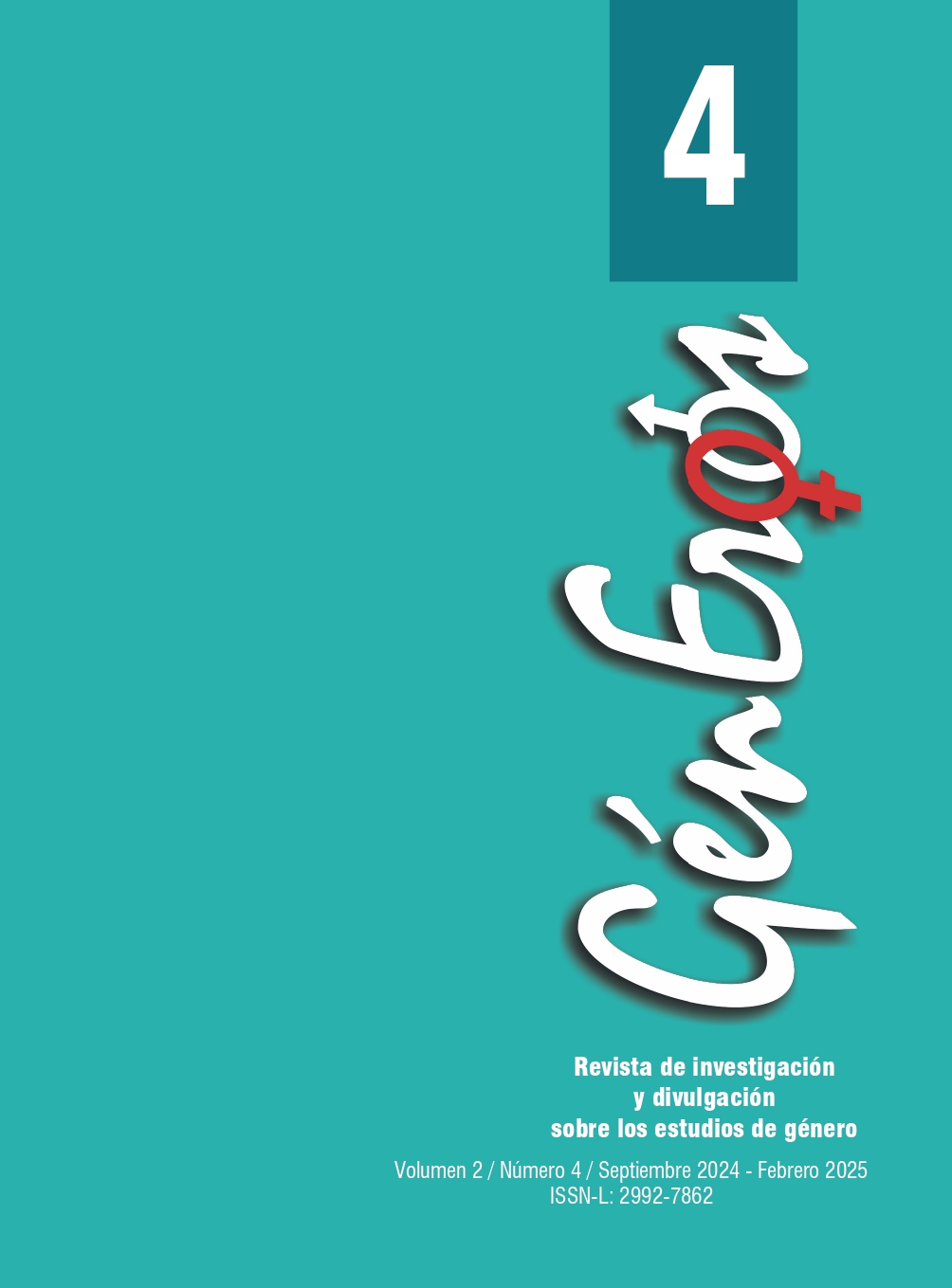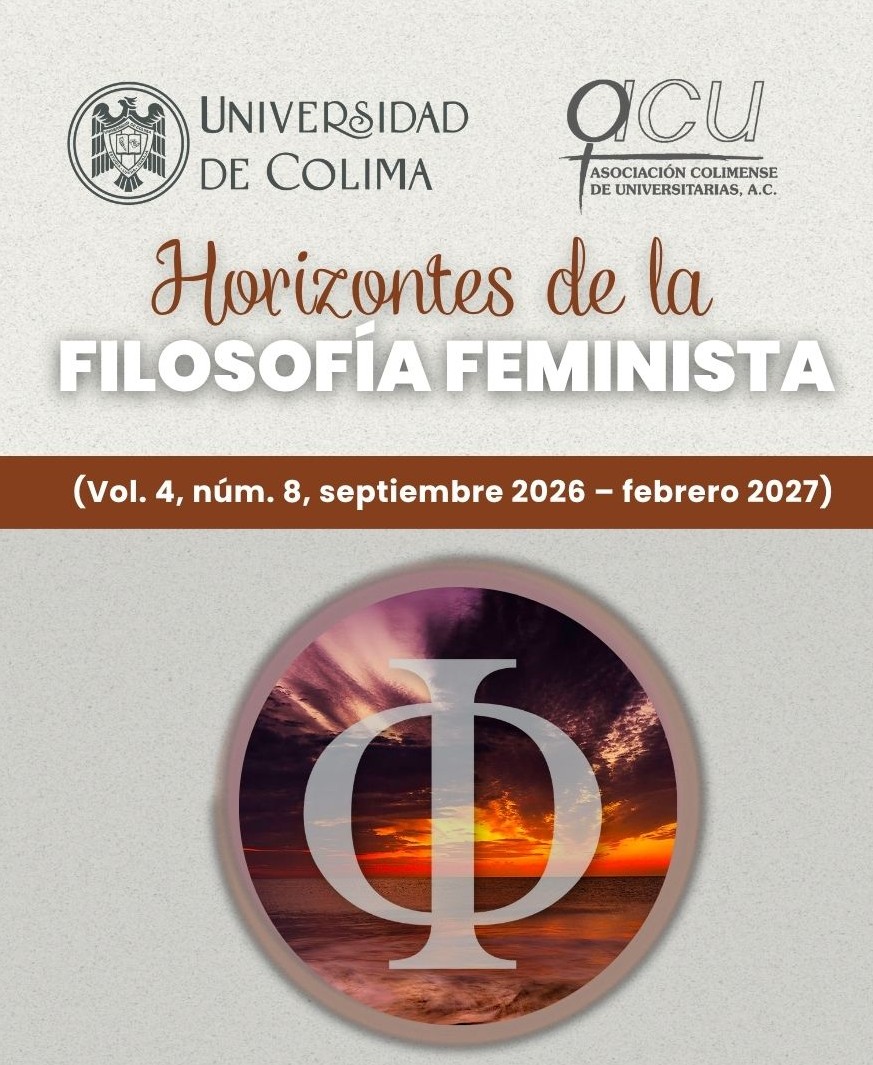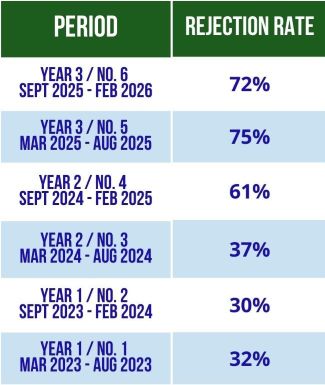The feminist bioethics as a theoretical foundation for dignified menstruation in Mexico.
DOI:
https://doi.org/10.53897/RevGenEr.2024.04.07Keywords:
dignified menstruation, human rights , feminist ethics, feminist bioethics, ethics of careAbstract
This contribution is presented as a scientific dissemination article, based on the research work conducted within the Bioethics postgraduate program at the University of Colima in 2023. It addresses dignified menstruation in Mexico, focusing on legislative advancements and the consolidated actions of activist collectives such as Menstruación Digna México. Analyzed through a documentary methodology, the proposal highlights feminist bioethics, along with feminist ethics and the ethics of care as supportive frameworks, with the aim of providing a theoretical foundation for the concept of “dignified menstruation.” Based on this a perspective is offered that helps ensure that policies and practices around menstruation respect the dignity and human rights of women. Through a deep and multidisciplinary understanding of the specific challenges and needs of this population group in Mexico, more effective and equitable solutions can be designed and implemented, contributing to the expansion of knowledge and the eradication of violence against women. Therefore, the aim of this contribution is to provide theoretical foundations that recognize that menstruation is not just a biological issue, but also a complex topic encompassing health, law, and ethics.
Downloads
Metrics
References
Alfonso, Y. y Pino, D. (2010). Ética y género: Una reflexión necesaria. Revista Universidad y Sociedad, 2(3): 1-6. https://rus.ucf.edu.cu/index.php/rus/article/view/80/79
Barragán, A. (2020, 29 de septiembre). Menstruación digna, la iniciativa en México que busca quitar el IVA de los productos menstruales. El País. https://verne.elpais.com/verne/2020/09/29/mexico/1601355516_259296.html
Boscán, A. (2015). La bioética feminista y la construcción actual del género. Opción, 31(5): 162-188. https://produccioncientificaluz.org/index.php/opcion/article/view/20646/20549
Camps, Victoria (1998). El siglo de las mujeres. Cátedra.
Camps, V. (2021). Tiempo de cuidados. Otra forma de estar en el mundo. Arpa.
Comisión de Derechos Humanos de la Ciudad de México. (2023). Ciudad Defensora (Año 3, Núm. 23). Dirección Ejecutiva de Investigación e Información en Derechos Humanos. https://cdhcm.org.mx/wp-content/uploads/2023/03/Ciudad-Defensora-23_digital.pdf
DeLoughery, E. P., Colwill, A. C., Edelman, A., & Bannow, B. S. (2023). Red blood cell capacity of modern menstrual products: Considerations for assessing heavy menstrual bleeding. BMJ sexual & reproductive health, bmjsrh-201895. https://doi.org/10.1136/bmjsrh-2023-201895
Fondo de Población de las Naciones Unidas. (2022). La menstruación y derechos humanos - Preguntas frecuentes. https://www.unfpa.org/es/menstruacion-preguntas-frecuentes
Forbes. (2020, 21 octubre). Diputados rechazan iniciativa para eliminar IVA a productos de higiene menstrual. Forbes México. https://forbes.com.mx/noticias-diputados-rechazan-eliminar-iva-a-toallas-sanitarias-copas-y-tampones/
Galván, M., & Yañez, B. (2020, 21 de noviembre). El debate sobre la Menstruación Digna cobra fuerza a nivel nacional. Expansión política. Recuperado de https://politica.expansion.mx/sociedad/2020/11/21/el-debate-sobre-la-menstruaciondigna-cobra-fuerza-a-nivel-nacional
Galván, M. (2021, 19 septiembre). Palomean Propuesta de IVA cero a productos menstruales, piden vigilar precios. ADN. Expansión Política.
https://politica.expansion.mx/sociedad/2021/09/18/palomean-iva-cero-productos-menstruales
Galván, M. (2021, 27 de octubre). "No más impuestos por menstruar": OSC celebran tasa cero a productos de higiene. Expansión política. https://politica.expansion.mx/mexico/2021/10/27/no-mas-impuestos-por-menstruar-osc-celebran-tasa-cero-a-productos-de-higiene
García, A. K. (2021, 27 octubre). ¿Qué implica la eliminación del IVA en productos de gestión menstrual en México? El Economista.
García, A. K. (2022, 28 agosto). México y el camino hacia la menstruación digna: gratuidad y acceso a derechos. El Economista.
Gilligan, C. (1993). In a different voice: Psychological theory and women’s development. [Archivo PDF] Harvard University Press. https://www.jstor.org/stable/j.ctvjk2wr9
https://doi.org/10.2307/j.ctvjk2wr9
Gilligan, C. (2013). La resistencia a la injusticia: una ética feminista del cuidado. La ética del cuidado (40): 40-66. Cuadernos de la Fundación Víctor Grifols i Lucas. https://www.revistaseden.org/boletin/files/6964_etica_del_cuidado_2013.pdf
Jaggar, M. (2014). Ética feminista. Elsevier, 49: 8-44. https://debatefeminista.cieg.unam.mx/index.php/debate_feminista/issue/view/38
López, M. (2014). Bioética feminista. Dilemata, 6(15): 143-152. https://www.dilemata.net/revista/index.php/dilemata/article/view/297
Marino, S. (2019, 25 octubre). La pobreza menstrual en el mundo. Observatorio violencia.org. https://observatorioviolencia.org/la-pobreza-menstrual-en-el-mundo/
Mundo Apoya Mujeres y La Mancha de Chile (2021). Pobreza Menstrual en Chile. https://www.camara.cl/verDoc.aspx?prmID=233045&prmTipo=DOCUMENTO_COMISION
Puleo, A.H. (2013). El concepto de género como hermenéutica de la sospecha: De la biología a la filosofía moral y política. Arbor, 189(763): a070. https://doi.org/10.3989/arbor.2013.763n5007
Sau, V. (2000). Diccionario ideológico feminista I. Editorial Icaria.
Vera, M. (2021). Michoacán, primer estado que aprueba la ley de #MenstruaciónDigna. El Financiero. Recuperado de https://www.elfinanciero.com.mx/estados/michoacan-primer-estado-que-aprueba-la-ley-de-menstruaciondigna/
Zaldívar, A. (2023, 24 octubre). Derecho humano al cuidado. Grupo Milenio. https://www.milenio.com/opinion/arturo-zaldivar/los-derechos-hoy/derecho-humano-al-cuidado
Published
How to Cite
Issue
Section
License
Copyright (c) 2024 Daniela Estefanía Luna Flores

This work is licensed under a Creative Commons Attribution-NonCommercial-ShareAlike 4.0 International License.
GénEroos Magazine allows you to share, copy and redistribute the material in any medium or format; adapt, remix, transform and build upon the material, crediting the work appropriately and providing a link to the licence, indicating if changes have been made.












